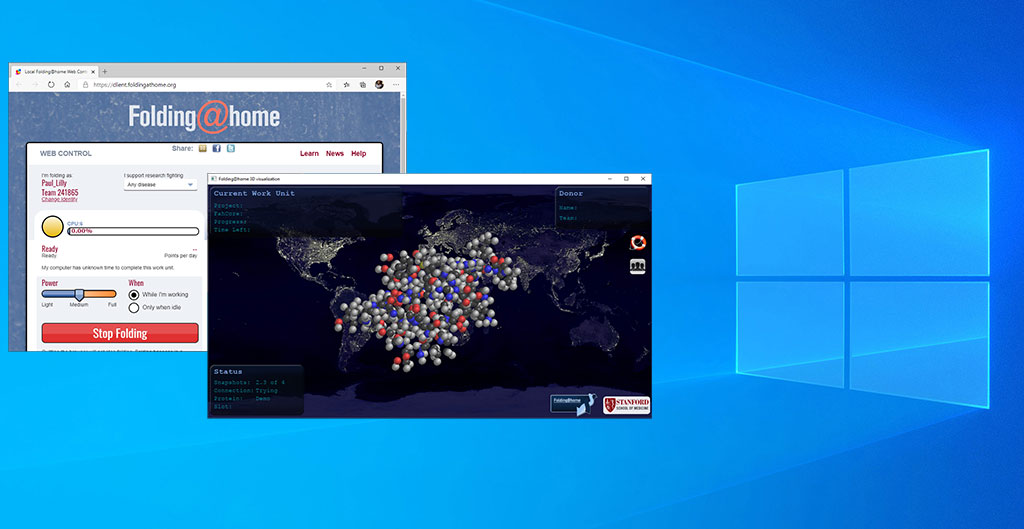Folding@home is now 15 times faster than any current supercomputer
Folding@home had declined in popularity until the coronavirus pandemic sparked a massive surge of support.

By itself, your PC is not anywhere near as powerful as a supercomputer. Don't worry, neither is mine, or anyone else's I know. But while none of use have the computing resources to single-handedly unlock the secrets of a virus, there is strength in numbers. As such, the collective efforts of PC users far and wide have propelled the Folding@home project to crunch data at a pace that is 15 times faster than IBM's Summit, the top supercomputer in the world.
The developers of Folding@home have been posting periodic updates on Twitter, and according to the latest one, the distributed computing project is currently cranking out around 2.4 exaFLOPs of computational power.
With our collective power, we are now at ~2.4 exaFLOPS (faster than the top 500 supercomputers combined)! We complement supercomputers like IBM Summit, which runs short calculations using 1000s of GPUs at once, by spreading longer calculations around the world in smaller chunks! pic.twitter.com/fdUaXOcdFJApril 13, 2020
That is some staggering number crunching capability. In addition to having the potential to run circles around the fastest supercomputer ever built, Folding@home could even outpace the sustained output of the top 500 supercomputers combined, at least in theoretical output—it's quite the task to keep doling out enough workloads to tap into all that power.
Folding@home got off the ground nearly two decades ago. It was started by the Pande Laboratory at Stanford University as a means of understanding how proteins fold. These types of simulations are computationally demanding, and can ultimately lead to a better understanding (and hopefully treatments and/or cures) of diseases like Alzheimer's.
Public participation in Folding@home has waned considerably over the past decade, especially when Sony stopped supporting the project on its PlayStation 3 console in 2012. Then the coronavirus pandemic hit.
During a Reddit AMA, Folding@home director Gregory Bowman said around 30,000 people were participating in the project at the beginning of the year. As of March 20, that number ballooned to 400,000. It's not clear how many people are currently participating, but it would not surprise me if half a million or more are now contributing.
PC Gamer has its own Folding@home team, as sites compete with each other to amass the most points. It's a fun way to increase participation. If you would like to join the PC Gamer team, just follow the directions outlined in our forum.
The biggest gaming news, reviews and hardware deals
Keep up to date with the most important stories and the best deals, as picked by the PC Gamer team.
Paul has been playing PC games and raking his knuckles on computer hardware since the Commodore 64. He does not have any tattoos, but thinks it would be cool to get one that reads LOAD"*",8,1. In his off time, he rides motorcycles and wrestles alligators (only one of those is true).


